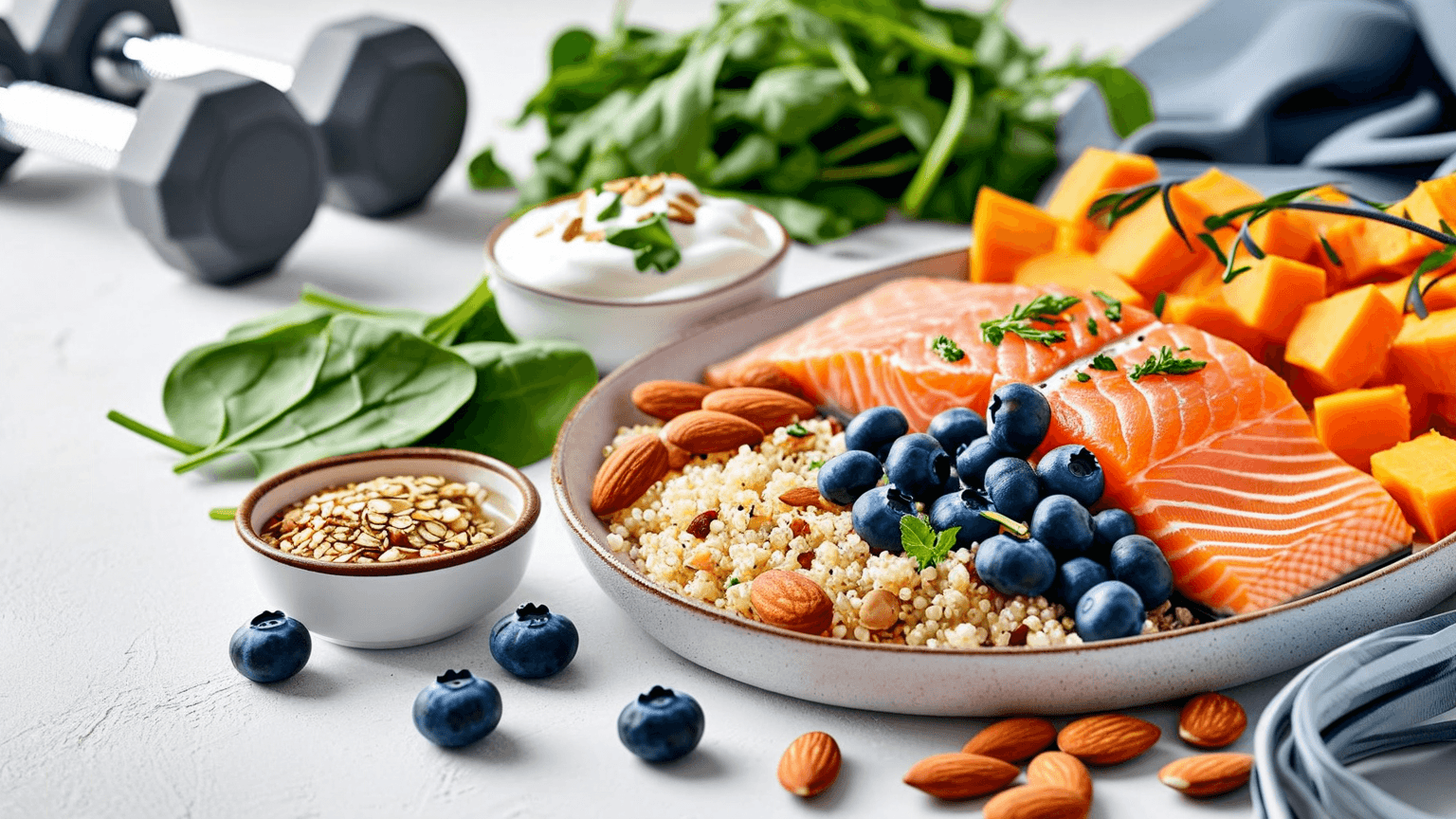Your expensive supplements might be doing absolutely nothing for you. Despite spending hundreds of dollars on top power packed vitamins and minerals, your body could be absorbing less than 20% of what you're taking. The culprit? Hidden nutrient absorption blockers lurking in your daily routine that create a physiological barrier between you and optimal health.
This isn't about taking more supplements or switching to heavily refined alternatives. It's about understanding the intricate dance between nutrients in your digestive system and removing the roadblocks that prevent your body from accessing the fuel it desperately needs. When you master this knowledge, you'll transform not just your supplement routine, but your entire approach to nutrition.
The Silent Saboteurs in Your Kitchen
Phytates, oxalates, and tannins sound like chemistry terms, but they're actually compounds hiding in seemingly healthy foods that can slash your mineral absorption by up to 80%. Spinach, despite being a nutritional powerhouse, contains oxalates that bind to calcium and iron, making them nearly impossible for your body to use. Similarly, the phytates in whole grains and legumes create an invisible shield around zinc, magnesium, and iron.
Coffee and tea lovers face another challenge. The tannins in these beverages can reduce iron absorption by 60% when consumed with meals. This doesn't mean you need to eliminate these foods entirely, but understanding their potential interactions with nutrient uptake allows you to make strategic timing decisions that maximize your body's ability to extract every vitamin and mineral.
The solution lies in preparation methods that neutralize these compounds. Soaking grains and legumes for 12-24 hours activates enzymes that break down phytates. Fermenting foods like sauerkraut and kimchi not only reduces anti-nutrients but also creates beneficial bacteria that enhance overall digestive function. These traditional preparation methods weren't just cultural practices – they were sophisticated techniques for optimizing nutrient bioavailability.
Your Digestive System's Hidden Weaknesses
Low stomach acid affects nearly 40% of adults over 40, creating a cascade of absorption problems that go far beyond simple indigestion. Hydrochloric acid doesn't just break down food – it's essential for separating minerals from their protein carriers and converting them into forms your intestines can actually absorb. Without adequate stomach acid, even the most bioavailable supplements pass through your system unused.
Stress compounds this problem by diverting blood flow away from digestive organs and suppressing the production of digestive enzymes. When you're in a constant state of fight-or-flight, your body prioritizes immediate survival over long-term nutritional needs. This physiological response can reduce nutrient absorption by 30-50%, explaining why stressed individuals often develop deficiencies despite adequate dietary intake.
The health of your intestinal lining determines whether nutrients enter your bloodstream or get eliminated as waste. Inflammatory foods, medications, and chronic stress can create microscopic holes in this barrier, leading to a condition called leaky gut. Paradoxically, this doesn't improve absorption – it actually reduces it while allowing partially digested particles to trigger immune responses that further compromise digestive function.
The Timing Revolution That Changes Everything
When you take nutrients matters as much as what you take. Fat-soluble vitamins A, D, E, and K require dietary fat for absorption, yet many people take these supplements on an empty stomach where they're essentially useless. Consuming these vitamins with just 5-10 grams of healthy fat can increase absorption rates by 300-500%.
Mineral timing requires even more precision. Calcium and iron compete for the same absorption pathways, so taking them together reduces the uptake of both. Zinc and copper have a similar antagonistic relationship, while magnesium can interfere with calcium absorption when taken in large doses simultaneously. Understanding these interactions allows you to space your supplements strategically throughout the day for maximum benefit.
The concept of nutrient synergy reveals how certain combinations enhance absorption. Vitamin C can increase iron absorption by up to 400% when taken together, while vitamin D dramatically improves calcium uptake. Black pepper contains piperine, a compound that increases the bioavailability of curcumin by 2000%. These natural partnerships have evolved over millions of years and represent the top power of intelligent nutrient combining.
Food Processing's Hidden Impact on Athletic Performance
Modern food processing strips away the very compounds that enhance nutrient absorption while adding chemicals that actively block it. Heavily refined alternatives to whole foods often contain preservatives, artificial colors, and stabilizers that interfere with digestive enzyme function. These additives can reduce the bioavailability of nutrients by 20-40% compared to their whole food counterparts.
For athletes seeking peak performance, this processing penalty becomes even more critical. The synthetic vitamins added back to fortified foods often lack the cofactors and supporting compounds found in natural sources. This means that a fortified breakfast cereal might contain 100% of your daily iron needs on paper, but your body may only absorb 10-15% of it due to the absence of natural enhancers and the presence of absorption inhibitors.
The solution involves choosing minimally processed foods whenever possible and understanding how to enhance the bioavailability of nutrients through proper preparation. Cooking tomatoes increases lycopene absorption, while eating carrots with a small amount of fat dramatically improves beta-carotene uptake. These simple techniques can multiply the nutritional value of your meals without changing what you eat.
The Microbiome Connection to Nutrient Utilization
Your gut bacteria don't just digest food – they manufacture vitamins, break down compounds that would otherwise block absorption, and directly influence how efficiently your intestines transport nutrients into your bloodstream. Certain bacterial strains can increase the bioavailability of minerals by up to 40% while producing B vitamins and vitamin K that your body can't make on its own.
Antibiotic use, processed foods, and chronic stress can devastate these beneficial populations, creating a state where even perfect nutrition fails to meet your body's needs. The diversity and health of your microbiome directly correlates with your ability to extract maximum value from every meal and supplement. This explains why two people eating identical diets can have vastly different nutritional status.
Rebuilding a healthy microbiome requires more than just taking probiotics. Prebiotic foods like Jerusalem artichokes, garlic, and onions feed beneficial bacteria, while fermented foods introduce new strains that enhance nutrient processing. The key is consistency – it takes 3-6 months of dedicated effort to establish lasting changes in gut bacteria populations that translate to improved absorption.
Advanced Absorption Enhancement Strategies
Digestive enzymes can bridge the gap between poor natural production and optimal nutrient breakdown. Taking a comprehensive enzyme supplement with meals can increase the bioavailability of proteins, fats, and carbohydrates by 25-40%. However, the goal should be supporting your body's natural enzyme production through adequate stomach acid, proper chewing, and stress management rather than relying on supplements indefinitely.
Intermittent fasting creates windows of enhanced absorption by allowing your digestive system to reset and concentrate digestive juices. When you break a fast with nutrient-dense foods, your body is primed to extract maximum value from every bite. This approach can increase the absorption of fat-soluble vitamins and minerals while giving your digestive organs time to repair and regenerate.
Temperature and texture modifications can dramatically impact bioavailability. Cooking breaks down cell walls that trap nutrients, while blending increases surface area for digestive enzymes to work. However, excessive heat destroys heat-sensitive vitamins, so understanding which nutrients benefit from cooking and which are best consumed raw allows you to optimize every meal for maximum absorption.
Common Mistakes That Block Absorption
Taking all your supplements at once creates a traffic jam in your digestive system where nutrients compete for limited absorption sites. This shotgun approach can reduce overall uptake by 30-50% compared to strategic spacing throughout the day. The most expensive, highest-quality supplements become worthless when your body can't process them efficiently.
Drinking large amounts of liquid with meals dilutes digestive juices and speeds food through your system too quickly for optimal nutrient extraction. While hydration is crucial, timing your fluid intake to avoid the 30 minutes before and after meals can significantly improve digestion and absorption. This simple change can increase nutrient uptake by 15-20%.
Ignoring food combinations that enhance or inhibit absorption represents a massive missed opportunity. Eating iron-rich foods with calcium-rich dairy products can reduce iron absorption by up to 60%. Conversely, combining vitamin C-rich foods with iron sources can multiply absorption rates. These interactions aren't random – they're based on fundamental biochemistry that you can leverage for better health.
Your Action Plan for Maximum Absorption
Start by identifying the biggest absorption blockers in your current routine. Keep a food and supplement log for one week, noting timing, combinations, and any digestive symptoms. Look for patterns where you're inadvertently sabotaging your own efforts through poor timing or problematic combinations.
Implement strategic spacing of key nutrients. Take iron supplements on an empty stomach with vitamin C, calcium before bed for better sleep and absorption, and fat-soluble vitamins with meals containing healthy fats. This systematic approach can double or triple the effectiveness of your current supplement regimen without spending an additional dollar.
Focus on digestive health as the foundation of nutrient absorption. Support stomach acid production with bitter herbs or apple cider vinegar, incorporate digestive enzymes if needed, and prioritize stress management techniques that allow your body to enter the parasympathetic state necessary for optimal digestion. These foundational changes create lasting improvements in how efficiently your body processes all nutrients.
The difference between taking supplements and actually absorbing them can mean the difference between feeling energetic and vibrant versus tired and depleted despite doing everything "right." By understanding and addressing the hidden factors that block nutrient absorption, you unlock your body's true potential for health, energy, and performance. The nutrients you need are already within reach – you just need to remove the barriers preventing your body from accessing them.
Related Topics
Explore more superfood insights and nutrition guidance.



